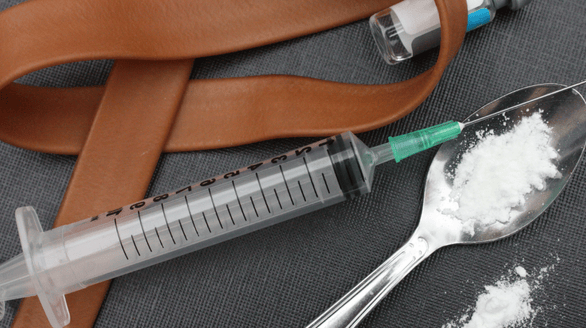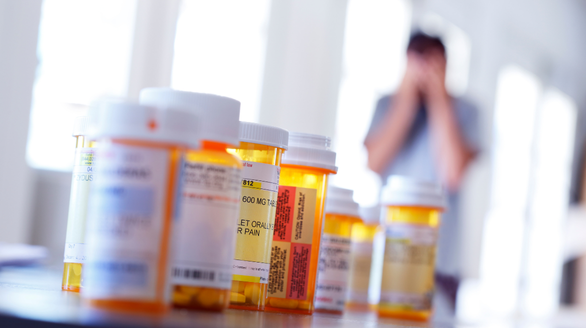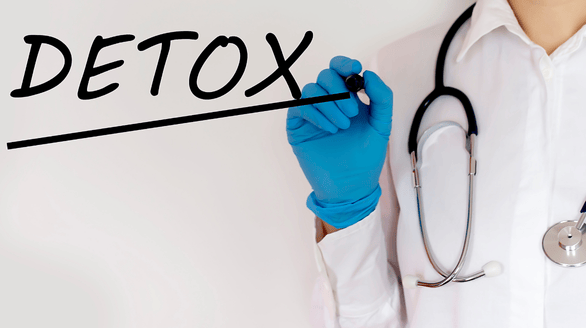Our Expert Rehab
Services in the UK & Abroad
Discover compassionate, expert-led addiction recovery services across the UK and internationally. Whether you’re seeking private care close to home or discreet treatment abroad, we’ll guide you to the right solution.
What We Offer
Addiction Treatments
Discover our full range of UK rehab services designed to support recovery from alcohol, drug, and behavioural addictions. We connect you with trusted treatment centres offering medically supervised detox, personalised therapy programmes, dual diagnosis care, and ongoing aftercare—across the UK and internationally.

UK Alcohol Addiction Treatment
UK alcohol addiction treatment from trusted rehab professionals—safe detox, expert therapy, and lasting recovery support.

UK Drug Addiction Treatment
UK drug addiction treatment tailored to individual needs—medical detox, behavioral therapy, and peer support for recovery.

UK Prescription Medication Misuse
UK treatment for prescription medication misuse—confidential support, medical oversight, and holistic care to rebuild health.

UK Gambling Addiction Recovery
UK gambling addiction recovery plans—evidence-based therapy and relapse prevention from addiction recovery experts.

UK Dual Diagnosis Support
UK dual diagnosis rehab care—treatment for addiction and mental health combined, led by qualified professionals.

UK Medical Detox
UK medical detox with 24/7 clinical supervision—safe, structured withdrawal from substances with experienced medical staff.

UK Outpatient Rehab
UK outpatient rehab for flexible recovery—structured programs you can attend while staying at home with full support.

UK Luxury Rehab
UK luxury rehab offering premium facilities, privacy, and personalized care for individuals seeking discreet recovery options.

UK Cocaine Addiction Treatment
UK cocaine addiction treatment with expert-led detox, behavioral therapies, and long-term relapse prevention strategies.

UK International Rehab
UK international rehab services—placement in top overseas rehabs with support from UK-based addiction professionals.

30+
Years of Experience
Our Legacy
Decades of Trusted Excellence in UK Rehab Care
With years of experience in UK addiction treatment, we help individuals overcome cocaine addiction with lasting, life-changing results. Our network of expert-led rehab centres is known for professionalism, compassion, and proven success—making us a trusted choice across the UK and beyond.
- Superior Clinical Standards
- Transparent Support Pathways
- Personalised Recovery Solutions
Ready to Take the First Step Towards Recovery?
Speak with a trusted advisor from UK Rehab Network and get matched with the right addiction treatment today.
Comprehensive Guide to UK Rehab Services
UK rehab services are comprehensive treatment programmes aimed at helping people overcome substance misuse and addictive behaviours. These services typically combine medical, psychological, and social support to address both the physical and emotional aspects of addiction. For example, recent government reviews emphasise expanded inpatient detoxification and residential rehabilitation alongside community and peer-support initiatives gov.uk. In England alone, an estimated 10 million adults regularly drink above safe limits and about 600,000 are alcohol-dependent publications.parliament.uk, illustrating how many people may benefit from structured rehab. Rehab services in the UK may include medically supervised detox, individual counselling, group therapy, and aftercare planning – all tailored to each person’s needs. These programmes often integrate healthcare and social support (such as housing or employment advice) to improve long-term recovery. gov.ukgov.uk.
Rehab in the UK is a team effort. Medical professionals oversee safe detox (where needed), while qualified therapists lead individual and group counselling. Patients learn coping strategies (like cognitive-behavioural therapy, mindfulness, or relapse prevention skills) under expert guidance. Many programmes also feature peer-support groups and peer mentoring, which the UK’s drug strategy specifically recommends expanding gov.uk. In fact, evidence shows peer-support components in addiction treatment “show much promise” for improving engagement and outcomes, pmc.ncbi.nlm.nih.gov. Overall, UK rehab centres provide a structured, understanding environment where people work with doctors, nurses, psychologists, social workers and trained recovery coaches to build healthy routines, repair relationships, and prevent relapse.
Private vs NHS Rehab in the UK
The UK offers rehab through both publicly funded services and private clinics. NHS/local authority rehab services are free at the point of use, and local councils (not the NHS itself) now commission addiction treatment gov.uk. These services may include community clinics, day programmes, and some inpatient places. In recent years the government has invested heavily in this system: for example, England’s public treatment funding will rise ~40% by 2025, creating over 50,000 new treatment placesgov.uk. This funding boost is meant to recruit more specialist staff and improve service quality, so more people can access support.
By contrast, private rehab is paid for out of pocket or via insurance. Private clinics generally allow faster access (no NHS waiting lists) and often offer more choice in facilities and therapies. They may provide amenities like private bedrooms, holistic therapies (e.g. yoga, acupuncture), and more intensive one-to-one counselling. However, private rehab can be costly (tens of thousands of pounds for longer stays), so it’s less accessible to everyone. Public rehab is free but can have waiting lists or eligibility criteria. In practice, many people start with local NHS services and only use private rehab if urgent help is needed, or they prefer the extra comfort and privacy. In all cases, the goal is the same: to support recovery.
Benefits of Professional Rehab
Professional rehab offers advantages that greatly enhance the chance of successful recovery:
Medical Safety: At a rehab centre, medical staff supervise any detoxification, managing withdrawal symptoms safely. This reduces the risk of complications from suddenly stopping substances. Doctors and nurses can also address health issues (like liver or heart problems) often accompanying long-term addiction.
Structured Support: Rehab provides a daily schedule of counselling, therapy groups, and activities. This structure removes people from their normal environment and triggers, making it easier to focus on recovery. Therapists are trained in evidence-based treatments (for example, cognitive-behavioural therapy) that address underlying issues and teach coping skills.
Expert Guidance: Patients work with multidisciplinary teams of psychologists, social workers, and other specialists who understand addiction. UK guidelines emphasise expanding the number of qualified drug and alcohol professionals in treatment servicesgov.ukgov.uk. These experts tailor plans to each person – whether that’s longer residential programmes or shorter day treatments – improving care quality.
Peer and Community Support: Rehab isn’t just about one-on-one therapy. Group therapy and peer support are key elements. Participants share experiences with people facing similar struggles, which can reduce stigma and isolation. The UK drug strategy specifically calls for more peer-led recovery communities to complement clinical services’ gov.uk. Research shows that including peer support groups in treatment “shows much promise” for improving outcomes, pmc.ncbi.nlm.nih.gov. In other words, making connections with others in recovery often helps people stay motivated and learn from each other.
Aftercare Planning: Good rehab programmes plan beyond the stay itself. Staff help set up follow-up care, such as community counselling or support groups, to “sustain [patients] outside of treatment” and reduce relapse ratesgov.uk. This might include connecting with Alcoholics Anonymous, Narcotics Anonymous, or local recovery networks. The UK government notes that additional recovery support is crucial – investments in aftercare are intended to lower relapse and criminal activity linked to addictiongov.uk.
Overall, professional rehab tackles both the physical addiction and its root causes (stress, trauma, mental health issues, etc.). Studies consistently find that comprehensive rehab dramatically improves the odds of long-term recovery compared to trying to quit alone.
How Rehab Admissions Work
The pathway into rehab varies by service, but usually involves these steps:
Initial Contact: For NHS-funded rehab, the first step is often to speak with a GP or local substance misuse team. You can also self-refer to community addiction services or even call a local council’s drug/alcohol service line. After 2013, local authorities hold the budget for such services gov.uk, so your town or city will have information on treatment options. Private rehab can be accessed by contacting the facility directly (or via a private doctor or insurer).
Assessment: A qualified professional (nurse, counsellor, or doctor) will assess the individual’s needs. This includes medical history, substance use history, mental health screening, and social circumstances. The goal is to create a personalised treatment plan. The assessment also determines if a supervised detox is needed first.
Planning: Based on the assessment, a rehab plan is agreed. This might be inpatient (residential rehab) or outpatient (day or evening programme), depending on severity. Medical detox (if needed) is arranged either as part of the residential stay or at a hospital/local unit.
Admission: For residential rehab, you’ll be admitted to the facility, usually for a set period (often 2–12 weeks, depending on programme). A nurse or doctor will conduct an initial health check. The detox phase is managed in-house if required, with 24/7 medical support. Therapy sessions and group meetings will begin shortly after admission. For outpatient rehab, you’ll start attending scheduled counselling and therapy sessions while living at home.
Treatment & Monitoring: Throughout rehab, progress is regularly reviewed by the care team. Medications (for addiction or mental health) may be adjusted. Rehab centres in the UK follow regulated standards (e.g. by the Care Quality Commission) to ensure quality. UK guidelines now emphasise having enough trained staff to improve treatment quality gov.uk, so patients should expect professional oversight rather than navigating recovery alone.
Aftercare Setup: Before discharge, staff will plan aftercare – this can include scheduling follow-up appointments, arranging community therapy, or setting up peer support contacts. The rehab centre will typically encourage or facilitate continued involvement in support networks to maintain recovery gains.
Navigating rehab admission may seem daunting, but services keep confidentiality paramount. All discussions with treatment providers are private, and consent is always required before admission. If you’re unsure where to start, many UK charities and NHS service lines (like your local alcohol or drug helpline) offer free advice on the next steps.
Final Thoughts and Next Steps
Seeking rehab support is a courageous and positive step toward a healthier life. UK rehab services – whether NHS-funded or private – are staffed by caring professionals who want to help you or your loved one recover. Treatment not only addresses the addiction itself but often improves overall well-being, relationships, and hope for the future.
If you recognise the signs of addiction in yourself or someone else, don’t wait to get help. Early action makes success more likely. You are not alone in this journey: free and confidential help is available. For example, your local NHS substance misuse team or charities like Turning Point and Alcohol Change offer advice without obligation. If you’re reading this on a treatment provider’s site, consider reaching out for a private consultation – many places offer free advice calls.
Whatever route you choose, remember that recovery is possible and support is out there. Take the first step today: contact a professional, talk to your GP, or call a helpline. Compassionate experts are ready to listen and guide you confidentially. You deserve help and a chance to reclaim your life.
